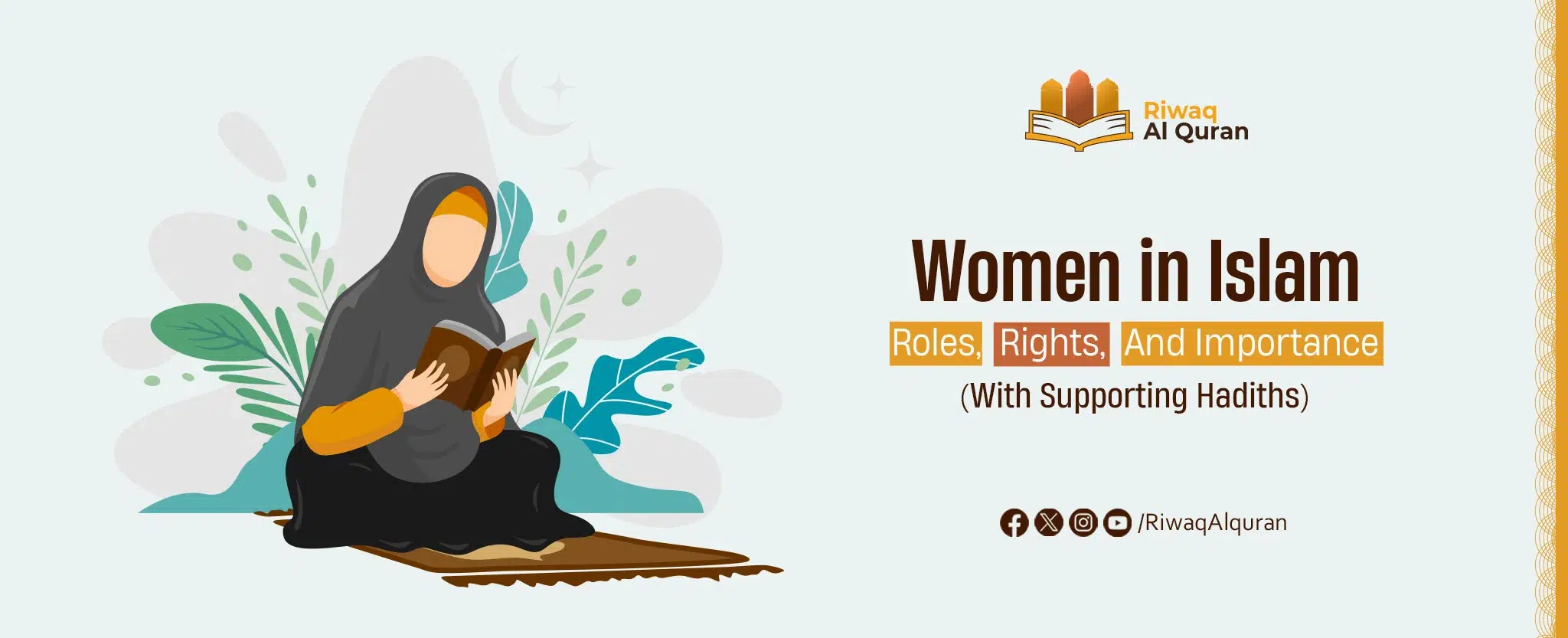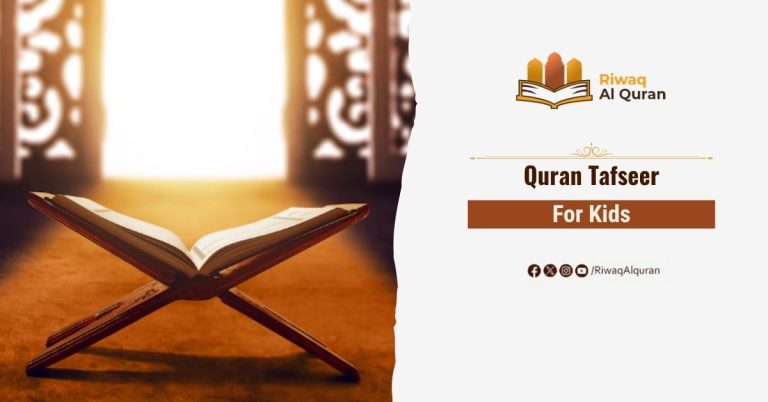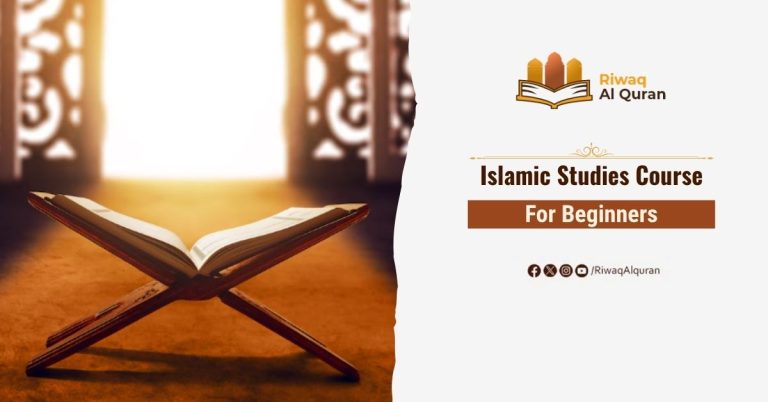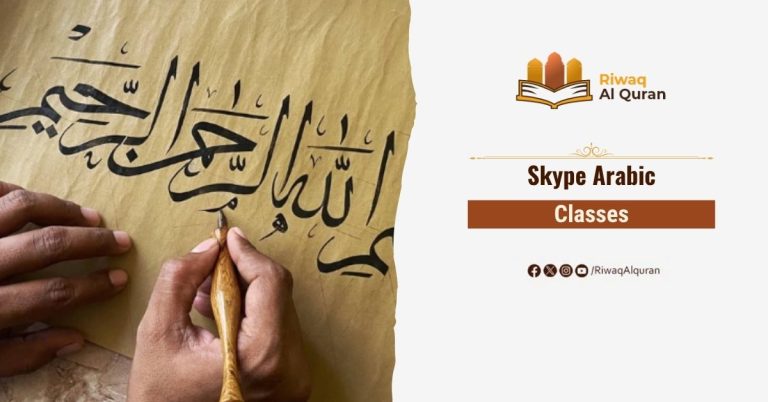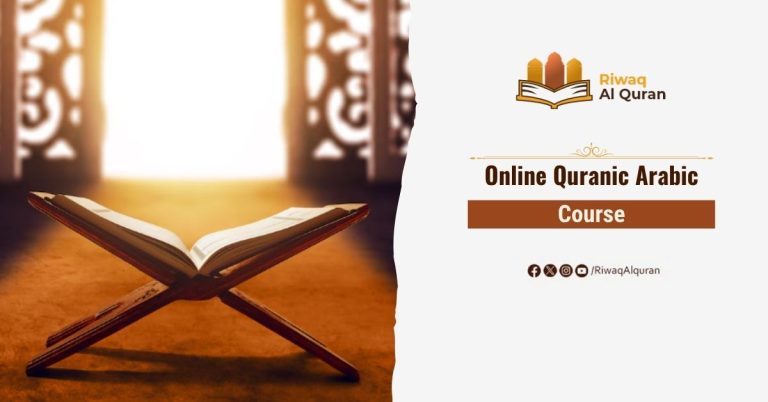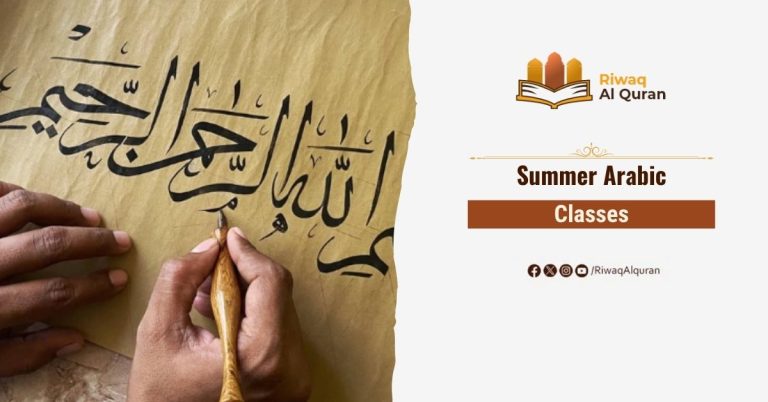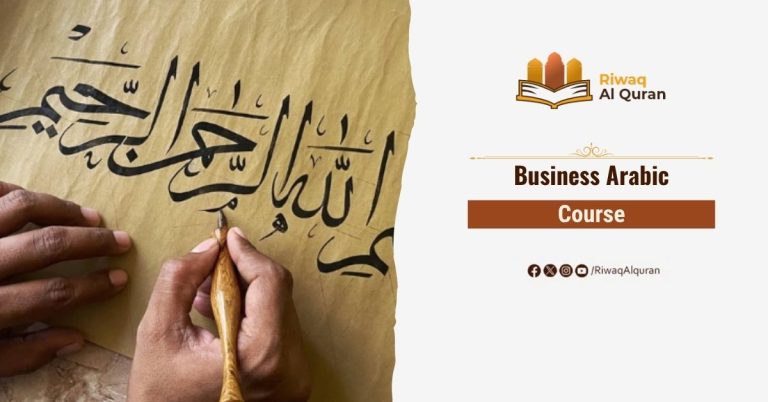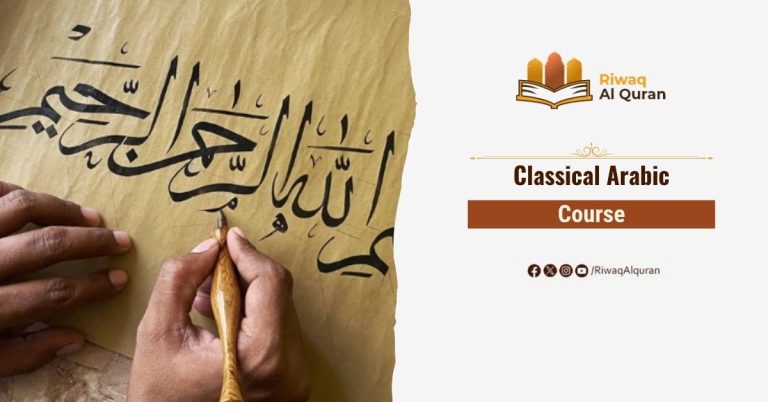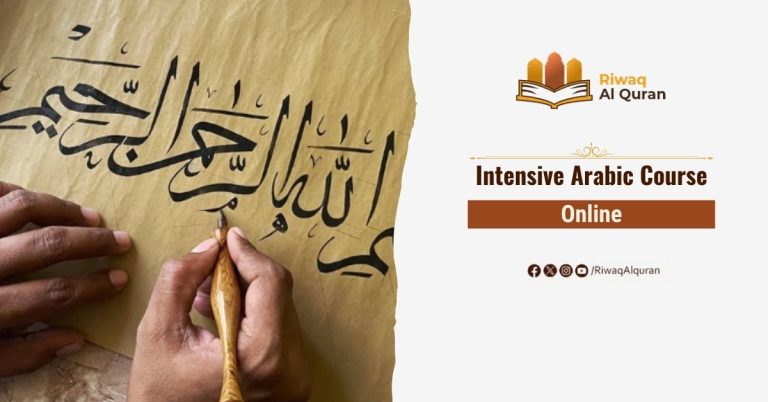Women in Islam are empowered with equal spiritual, social, and economic rights, playing vital roles in faith, family, and society. From the right to education and ownership to being leaders and nurturers, they contribute immensely to both religious and community life. Revered figures like Khadijah and Aisha embody this, while Islamic teachings emphasize kindness, respect, and the dignity of women, recognizing their essential role as equals in shaping a just and compassionate society.
In this blog post, we will delve into the empowering role of women in Islam. We will explore their rights according to Islamic teachings, highlight notable women in Islamic history, and examine how they are treated within the faith.
We discuss relevant hadiths about women in Islam and provide insight into gender roles and equality. Throughout history, women in Islam have played significant roles in education, leadership, spirituality, and social justice, showcasing their immense contributions to society.
Table of Contents
Who Are Women in Islam?
In Islam, the principle of gender equality is firmly established, acknowledging the inherent worth and dignity of both men and women. The Quran highlights the shared responsibility of both genders for their actions, as Allah remarks: “O mankind! We created you from a single (pair) of a male and a female.” (Quran 49:13)
Women are deeply respected and valued in Islam, with their roles and contributions being vital to the cohesive functioning of society. Modesty is encouraged, emphasizing the importance for women to dress modestly and uphold their dignity.
Islam explicitly discourages objectification of women and mandates treating them with honor and respect. Moreover, women are granted several rights in Islam, including the right to education, inheritance, and the right to choose their life partners. Overall, women in Islam hold an elevated status, serving as equal partners in matters of faith and society.
How are women treated in Islam?
In Islam, women are treated with respect and equality. They are considered as equal partners in society and have important roles in nurturing and guiding the future generations. Islam recognizes the significance of women’s contributions and emphasizes their rights to education, property ownership, and participation in political affairs.
Women are valued and cherished as sisters of men, and their relationship with their husbands is described as a mutual support system where both parties are like garments for each other, symbolizing love, protection, and intimacy. Islam promotes the fair and just treatment of women, rejecting any form of discrimination or mistreatment based on gender.
Role of Women in Islam
In Islam, women play important roles in various aspects of life. Their contributions are not only acknowledged but also highly esteemed.
Women in Islam hold a revered and dignified status, enjoying equal spiritual and social rights alongside men. They are granted the right to education, inheritance, and participation in societal affairs. In their spiritual roles, women are seen as equal before God, with the same responsibilities in worship and faith. The family unit, where women are central figures in nurturing children and maintaining household harmony, is regarded as a key part of their contribution to society.
Islam emphasizes mutual respect and fairness between genders. Women are entitled to economic independence, owning and managing property, and even participating in leadership roles within their communities. Numerous hadiths stress kindness towards women, highlighting their value in all aspects of life, including marriage, family, and society. Figures like Khadijah, Fatima, and Aisha exemplify the influential roles women have played throughout Islamic history, showcasing their leadership, wisdom, and contribution to the faith.
Let’s examine the role of women in Islam and discover their significance through the following points:
1. Spiritual role of Women in Islam:
Women in Islam have the same spiritual obligations and opportunities as men. They are encouraged to seek knowledge, worship Allah, and engage in acts of charity and righteousness. Women have the freedom to practice their faith, participate in religious gatherings and rituals, and seek spiritual guidance.
2. Family role of Women in Islam:
Women play a crucial role in the family unit. They are seen as the foundation of the household and are responsible for nurturing and raising children. Islam emphasizes the importance of a harmonious family life, where both parents have shared responsibilities in providing their children love, care, and discipline.
3. Education and intellectual role of Women in Islam:
Islamic teachings promote education for both men and women. Women have the right to seek knowledge in various fields, including religious studies, sciences, arts, and literature. Islam encourages women to be intellectually curious, seek education throughout their lives, and contribute their knowledge and skills to society.
4. Economic role of Women in Islam:
Islam acknowledges women’s economic capabilities and allows them to engage in business and financial transactions. Women have the right to own and manage property, run businesses, and earn their income. They can contribute to the economic well-being of their families and play an active role in societal development.
5. Active Participation in Society:
Women in Islam are urged to actively engage in their communities, making meaningful contributions to social welfare and displaying acts of kindness and compassion towards others. They possess the right to express their opinions, have a say in decision-making, and champion fairness and equality for all.
6. Leadership and influence:
While there may be cultural variations, Islam recognizes the potential for women to hold positions of leadership and influence in various spheres. Women can serve as scholars, teachers, counselors, and mentors, guiding and inspiring others with their knowledge and wisdom. They also have the opportunity to contribute to public life and serve in leadership roles that benefit the community.
Learn the step-by-step process of performing Wudu for females in Islam. Enhance your worship by properly performing ablution – read “How To Perform Wudu For Females?” now!
Women’s Dignity and Rights in Islam
One of the key messages of the Quran is to uphold justice for women and free them from pre-Islamic oppression. Islam honored women as human beings, recognizing their full rights. The Quran affirms that men and women are equal in origin and humanity, as they both descend from Adam and Eve. Islam granted women dignity and status, acknowledging their roles as daughters, wives, mothers, and members of society.
Islam recognizes women as equal human beings to men, created from the same soul and deserving of the same respect and dignity. The Quran states:
“O mankind, fear your Lord, who created you from one soul and created from it its mate and dispersed from both of them many men and women.” (Quran 4:1)
This verse underscores the equality of men and women in their origin and humanity. Islam abolished the pre-Islamic practice of denying women their basic human rights and affirmed their status as individuals with their own identity, worth, and purpose.
Equality in Religious Duties and Worship
Islam establishes complete equality between men and women in religious obligations. The Quran states:
“Indeed, the Muslim men and Muslim women, the believing men and believing women, the obedient men and obedient women, the truthful men and truthful women, the patient men and patient women, the humble men and humble women, the charitable men and charitable women, the fasting men and fasting women, the men who guard their chastity and the women who do so, and the men who remember Allah often and the women who do so – for them Allah has prepared forgiveness and a great reward.” (Surah Al-Ahzab: 35)
In Islam, women are equal to men in their spiritual duties and rewards. The Quran explicitly mentions that both men and women are equally accountable for their actions and will be rewarded or punished based on their deeds. Women are encouraged to pray, fast, give charity, and perform all acts of worship, just as men are. Their faith and devotion are equally valued in the sight of Allah.
Equal Social Responsibilities
Islam assigns both men and women the responsibility of promoting good and forbidding evil. Both men and women are entrusted with upholding societal values. The Quran states:
“The believing men and believing women are allies of one another. They enjoin what is right and forbid what is wrong, establish prayer, give charity, and obey Allah and His Messenger. It is they upon whom Allah will have mercy. Indeed, Allah is Almighty and Wise.” (Surah At-Tawbah: 71)
This verse highlights the shared responsibility of men and women in upholding moral and ethical standards in society. Women are not confined to the home; they are active participants in the community, contributing to its betterment.
Women in the Story of Adam
The Quran presents Adam and Eve as equally responsible for their actions. Unlike some religious traditions that place blame on Eve alone, the Quran attributes their mistake to both of them. It was Satan who deceived them, and both repented together:
“Our Lord, we have wronged ourselves, and if You do not forgive us and have mercy upon us, we will surely be among the losers.” (Surah Al-A’raf: 23)
This narrative emphasizes the equality of men and women in accountability and redemption.
Equality in Rewards and Punishments
Islam guarantees that men and women are judged equally in the sight of Allah.
The Quran affirms:
“And their Lord responded to them, ‘Never will I allow to be lost the work of any worker among you, whether male or female; you are of one another.'” (Surah Aal-E-Imran: 195)
Women are promised the same rewards as men for their faith and good actions, and they will be judged based on their individual deeds, not their gender.
Women’s Financial Rights
Before Islam, many societies denied women property rights. Islam, however, granted women the right to own, inherit, buy, and sell property. Women were also given full control over their wealth and financial transactions, ensuring economic independence.
Islam granted women financial independence and the right to own and manage property. Women have the right to inherit, earn, and spend their wealth as they see fit. The Quran says:
“For men is a share of what they have earned, and for women is a share of what they have earned.” (Quran 4:32)
This was a revolutionary concept at a time when women were often treated as property themselves.
The Role of Women as Mothers
Islam elevated the status of mothers, commanding children to honor them. The Quran repeatedly emphasizes the hardships mothers endure in pregnancy and childbirth:
“And We have enjoined upon man [care] for his parents. His mother carried him, [increasing her] in weakness upon weakness, and his weaning is in two years. Be grateful to Me and to your parents; to Me is the [final] destination.” (Surah Luqman: 14)
The Prophet Muhammad (peace be upon him) stated that paradise lies beneath the feet of mothers, highlighting their significant role in family and society.
The Role of Women as Daughters
Pre-Islamic Arabs viewed daughters as burdens, often burying them alive. Islam condemned this practice and emphasized the blessing of having daughters. The Quran rebukes those who feel sorrow over having a daughter:
“And when one of them is informed of [the birth of] a female, his face becomes dark, and he suppresses grief. He hides himself from the people because of the ill of which he has been informed. Should he keep it in humiliation or bury it in the ground? Unquestionably, evil is what they decide.” (Surah An-Nahl: 58-59)
The Prophet Muhammad (peace be upon him) also emphasized the virtue of raising daughters with kindness, promising paradise to those who do so.
The Prophet Muhammad (peace be upon him) said, “Paradise lies at the feet of your mother,” highlighting the high status of mothers in Islam.
Women as Wives
Islam grants women rights within marriage, including the right to a dowry, financial support, and kind treatment. The Quran describes the marital relationship as one of love and mercy:
“And of His signs is that He created for you from yourselves mates that you may find tranquility in them; and He placed between you affection and mercy.” (Quran 30:21)
Women have the right to consent to marriage, seek divorce, and be treated with respect and fairness by their husbands.
Women in Society
Islam encourages women to participate in society, seek knowledge, and contribute to their communities. The Prophet Muhammad (peace be upon him) said, “Seeking knowledge is obligatory for every Muslim,” which includes both men and women. Women during the time of the Prophet were scholars, teachers, and even participants in battles, providing medical care and support.
Hadiths about women in Islam
In Islam, women are considered integral members of society, and the hadiths further emphasize their importance and the respect they deserve. Here, we will discuss some hadiths that shed light on the status and treatment of women in Islam.
1. Hadith about the Importance of Mothers:
Narrated by Abu Hurayrah, this hadith (Sahih al-Bukhari:5971) emphasizes the significance of mothers in Islam. The Prophet (peace and blessings be upon him) was asked who is most deserving of good companionship, to which he replied, “Your mother.” When asked again, the Prophet repeated the same answer three times before mentioning “your father.” This hadith highlights the elevated position of mothers and the honor and kindness that should be shown towards them.
2. Hadith about Treating Wives with Kindness:
In this hadith, (Jami` at-Tirmidhi:3895) the Prophet (peace and blessings be upon him) states that the best among people is the one who treats his wife with the utmost kindness. He exemplifies this by expressing that he is the best toward his wives. This narration emphasizes the importance of respecting and loving one’s spouse, highlighting the significance of a loving marital relationship.
3. Hadith about Raising Daughters:
In this hadith, (Sunan Ibn Majah:3669) the narration by ‘Uqbah ibn ‘Amir highlights the reward for those who raise and care for daughters. The Prophet (peace and blessings be upon him) states that whoever has three daughters, provides for them, and patiently fulfills their needs from his wealth, will find them as a shield protecting him from the torment of the Hellfire on the Day of Resurrection. This hadith underscores the value of daughters and the merit of treating them with love and care.
4. Hadith about Upholding Family Ties:
This hadith (Sahih al-Bukhari:5988), narrated by Al-Bukhari, underscores the importance of maintaining familial relationships. The Prophet (peace and blessings be upon him) conveys that Allah Himself states that anyone who upholds the ties of kinship will receive His support, while those who sever these ties will face separation from His blessings. This hadith emphasizes the significance of fostering strong family connections and treating relatives with kindness and respect.
Women’s Rights in Islam
Women’s rights in Islam have been a frequent subject of discussion and debate. Islam provides women with various rights and safeguards, guaranteeing their dignity and equality in society. Let us examine some important aspects of women’s rights in Islam:
1. Equal spiritual status:
The Quran explicitly states that men and women are equal in the eyes of Allah. In Surah Al-Hujurat (49:13), it says, “O mankind, indeed We have created you from male and female and made you peoples and tribes that you may know one another. Indeed, the most noble of you in the sight of Allah is the most righteous of you.” This verse clearly emphasizes that righteousness is the measure of superiority, not gender.
2. Right to education:
Islam encourages the education of both males and females. The Prophet Muhammad said, “Seeking knowledge is obligatory upon every Muslim.” This hadith includes both genders and promotes the pursuit of knowledge for personal and societal development.
3. Right to own property:
Islam grants women the right to own and manage their property. The Quran states in Surah An-Nisa (4:32), “And do not wish for that by which Allah has made some of you exceed others. For men is a share of what they have earned, and for women is a share of what they have earned.” This verse emphasizes the equal entitlement of men and women to what they have earned and implies the right of women to own property.
4. Right to inheritance:
In Islam, women are granted the right to inheritance, ensuring that they receive a fair share. The Quran provides specific guidelines for the distribution of inheritance, with women being allotted a portion based on their relationship to the deceased.
This ensures that women receive an obligatory share, regardless of the amount. The verse in Surah An-Nisa (4:7) clearly states the division of inheritance between men and women, emphasizing the importance of fairness in this matter.
5. Right to consent in marriage:
Islamic teachings place great emphasis on the mutual consent of both parties in marriage. According to the Prophet Muhammad, “A woman cannot be married without a guardian, and a marriage is invalid without witnesses.” This hadith emphasizes the importance of a woman’s consent and the necessity for proper documentation of the marriage agreement.
6. Right to divorce:
Islam also grants women the right to seek divorce under certain circumstances. The process of divorce in Islam aims to protect divorced women from being trapped in unhappy or abusive marriages. The Quran emphasizes the need for fair treatment and kindness towards women during divorce proceedings.
Surah Al-Baqarah (2:229) states that divorce can occur twice, and after that, the husband must either acceptably keep his wife or release her with good treatment. This verse highlights the importance of treating women with respect and compassion during the process of divorce.
7. Right to financial support:
As a wife, a woman is entitled to financial support from her husband. The Quran states in Surah An-Nisa (4:34), “Men are in charge of women by [right of] what Allah has given one over the other and what they spend [for maintenance] from their wealth.” This verse highlights the responsibility of men to provide for their wives’ financial needs.
Read also: Can Men and Women Be Friends in Islam?
Important Women in Islam
Throughout the history of Islam, there have been numerous influential and significant women who played crucial roles in shaping the religion and its teachings. Let us delve into the contributions and significance of these remarkable women in Islam.
1. Khadija Bint Al-Khuwaylid:
Khadija Bint Al-Khuwaylid known as the “Mother of Believers,” Khadija was the Prophet Muhammad’s first wife and a leading figure in the early days of Islam.
She financially supported and encouraged the Prophet during the difficult times of spreading the religion. Khadija’s unwavering support and belief in the Prophet’s mission played a crucial role in the establishment and success of Islam.
2. Fatima Bint Muhammad:
Fatima as the daughter of Prophet Muhammad and Khadija, Fatima held a special place in the Islamic community. She was known for her intelligence and her deep understanding of the teachings of Islam.
Fatima’s strong faith and commitment to Allah remained unshaken, even in the face of challenges. Her marriage to Ali ibn Abu Talib, one of the Prophet’s close companions, and her role as a mother to their children further cemented her influence within the Muslim community.
3. Zainab Bint Ali:
Zainab, the daughter of Fatima and Ali, lived through tumultuous times in Islamic history. She displayed immense bravery and commitment to her family and religion during the Battle of Karbala and the subsequent aftermath.
Despite witnessing the tragic deaths of her loved ones, Zainab remained steadfast and true to her faith. Her resilience and courage continue to inspire Muslims, especially women, to stand up against injustice.
4. Hafsa Bint Umar:
Hafsa was one of the wives of Prophet Muhammad and is esteemed for her preservation of Islamic knowledge. After becoming a widow, she was offered marriage by Uthman and Abu Bakr but declined.
Eventually, Prophet Muhammad married her, and she became known for her exceptional memorization of the Quran, which was then primarily transmitted orally. Her dedication to preserving the Quran motivated many, particularly women, to read and memorize the holy text.
5. Aisha Bint Abu Bakr:
Aisha, the daughter of Abu Bakr, played a significant role in narrating the sayings and actions of Prophet Muhammad. She documented over 2,000 hadiths, contributing greatly to Islamic teachings and scholarship.
Aisha’s knowledge and expertise spanned various aspects of life, making her a respected teacher and scholar. She serves as a role model for Muslim women seeking to live their lives by the teachings of Islam.
What are the gender roles in Islam?
Gender roles in Islam play a significant role in shaping the dynamics of society, as they define the responsibilities and expectations for both men and women. Let’s explore the gender roles in Islam:
1. Family Roles:
Men are considered the head of the household, responsible for providing financial support and protection. Women are primarily assigned domestic duties, including taking care of children, managing household chores, and nurturing family relationships.
2. Economic Roles:
Men traditionally take on the role of breadwinners to provide for their families’ material needs. Women have the right to work but are encouraged to prioritize their family responsibilities.
3. Social Roles:
Men hold positions of leadership within their communities and mosques. While women can participate in community activities, their primary focus is often centered around home life.
4. Spiritual Roles:
Both men and women have equal opportunities to seek knowledge about Islam, perform acts of worship, pray at mosques (with separate spaces), and engage in religious practices.
Don’t miss the opportunity to give your child a comprehensive education on Islam with our top-rated online Islamic studies course for kids at Riwaq Al-Quran.
Are men and women equal in Islam?
In Islam, men and women are considered equal in their spiritual worth and value, while acknowledging their inherent biological differences. Islam teaches that both men and women possess equal potential for righteousness and are equally accountable to Allah for their actions.
However, it is important to note that equality does not mean identical roles or responsibilities. Islam promotes complementary roles between men and women, each fulfilling their unique functions within society and the family unit.
Enroll in Riwaq Al Quran’s Online Fiqh Courses and Start Learning Now!
Are you looking to enhance your understanding of Islam and deepen your knowledge of Fiqh? Look no further! Enroll in Riwaq Al Quran’s online Fiqh courses today and start learning from certified instructors. Our courses are designed to provide comprehensive and in-depth teachings on Islamic jurisprudence, helping you navigate the complexities of Sharia law and understand the practical application of Islamic principles. Don’t miss this opportunity to expand your knowledge and strengthen your faith. Sign up now!
Here are a sample of our set of Quran Courses that will be helpful for you:
- Online Tafseer Course: Delve into Quranic meanings with our insightful online Tafseer course.
- Noorani Qaida Online: Learn Quranic basics efficiently through our Noorani Qaida online program.
- Online Quran Recitation Course: Enhance Quranic recitation skills through our expert-led online course.
- Online Tajweed Classes: Master Tajweed rules for beautiful Quranic recitation in online classes.
- Quran Memorization Online Course: Memorize the Quran effectively with our specialized online memorization course.
- Online Qirat Course: Explore diverse Qirat styles with our comprehensive online Qirat course.
- Online Quran Classes for Kids: Nurture a love for the Quran in kids through interactive online classes.

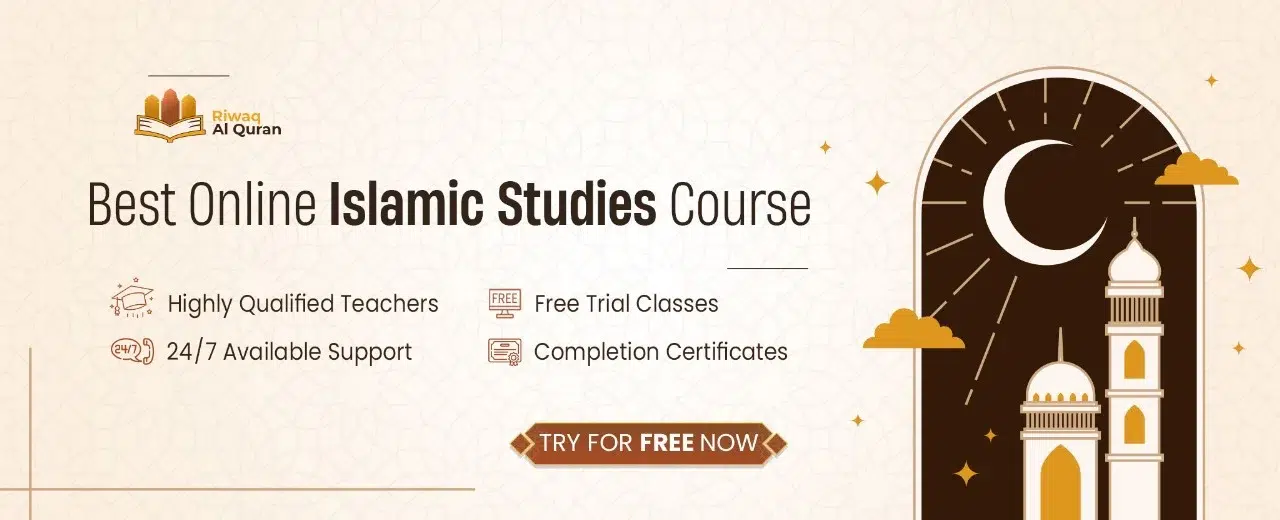
Conclusion
Islam grants women dignity, equality, and rights in all aspects of life. It recognizes their roles as individuals, family members, and contributors to society. The Quran and the teachings of the Prophet Muhammad (peace be upon him) affirm that men and women are equal partners in faith, responsibilities, and rewards.
Women hold significant roles in Islam and are granted rights that ensure their dignity and equality. They have played crucial roles throughout history, from revered figures like Khadijah (RA) to scholars and leaders. Women in Islam are treated with respect and honor, with guidelines for modesty and protection. Hadiths emphasize the importance of treating women kindly, respecting their autonomy, and recognizing their contributions.
It is important to recognize the diversity within Islamic societies and understand that cultural practices may not always align with true Islamic teachings regarding women’s rights. By learning about the role of women in Islam through reliable sources like online fiqh lessons at Riwaq Al Quran, we can promote understanding, empowerment, and inclusivity for all members of society.

